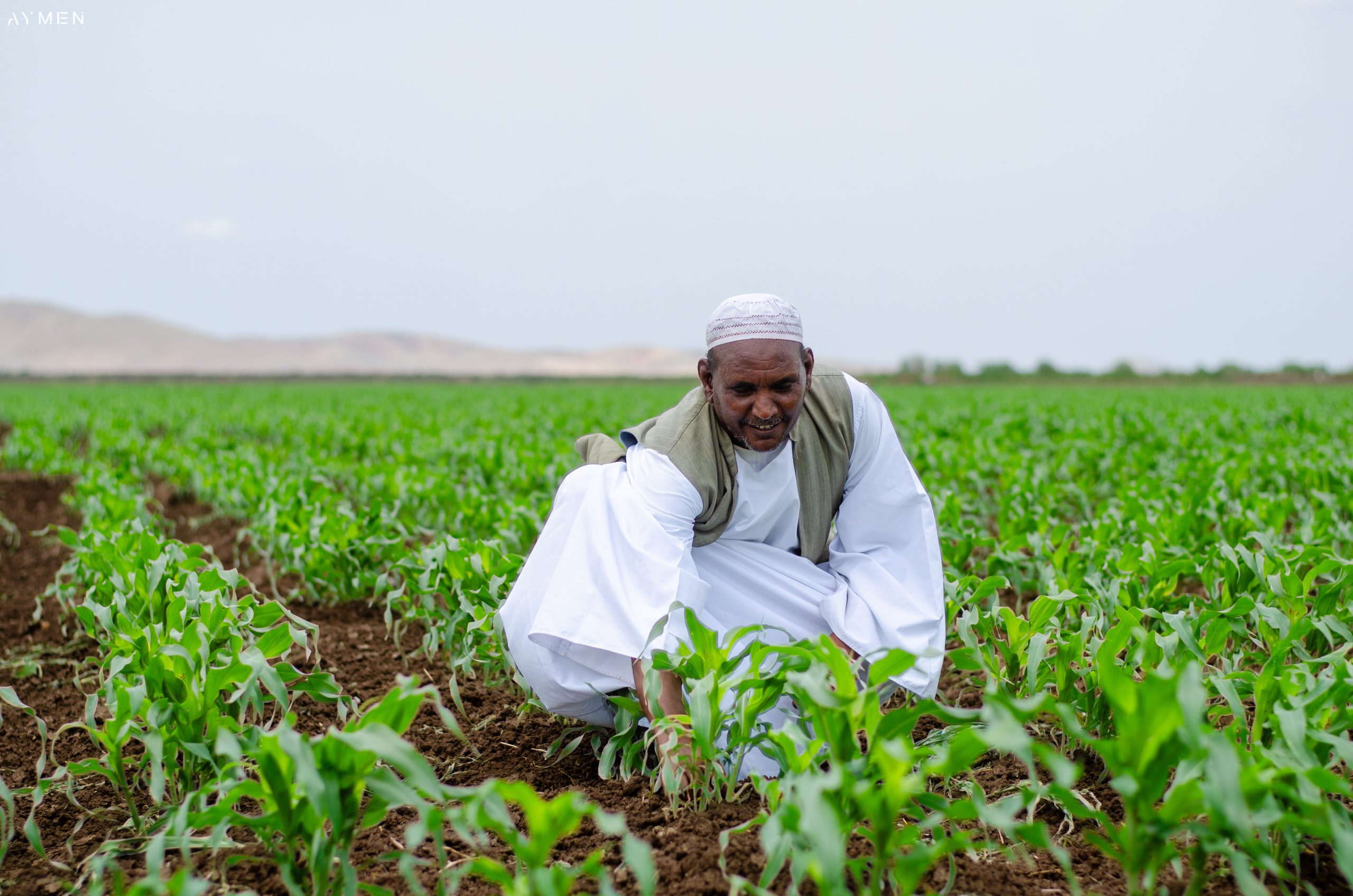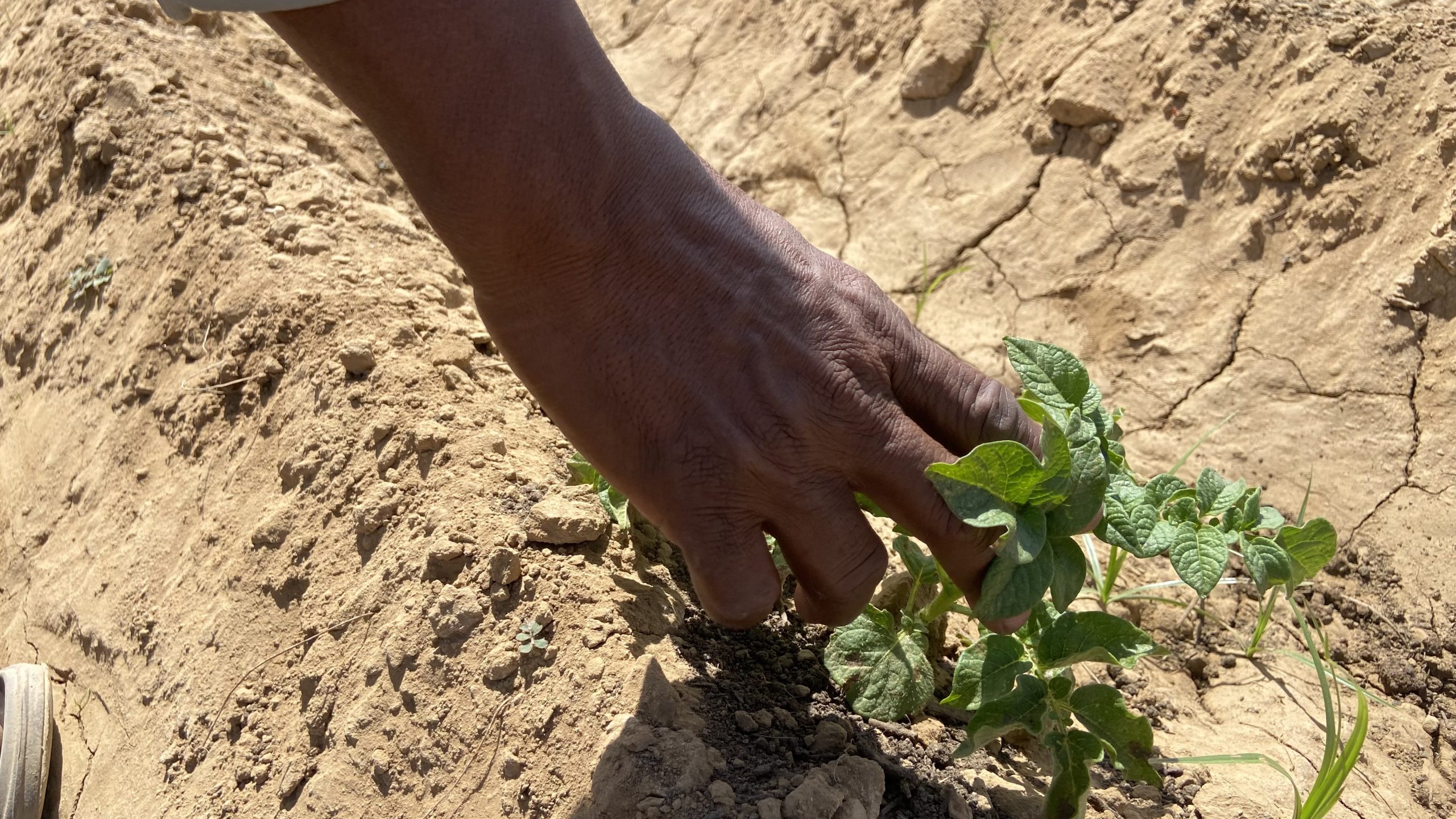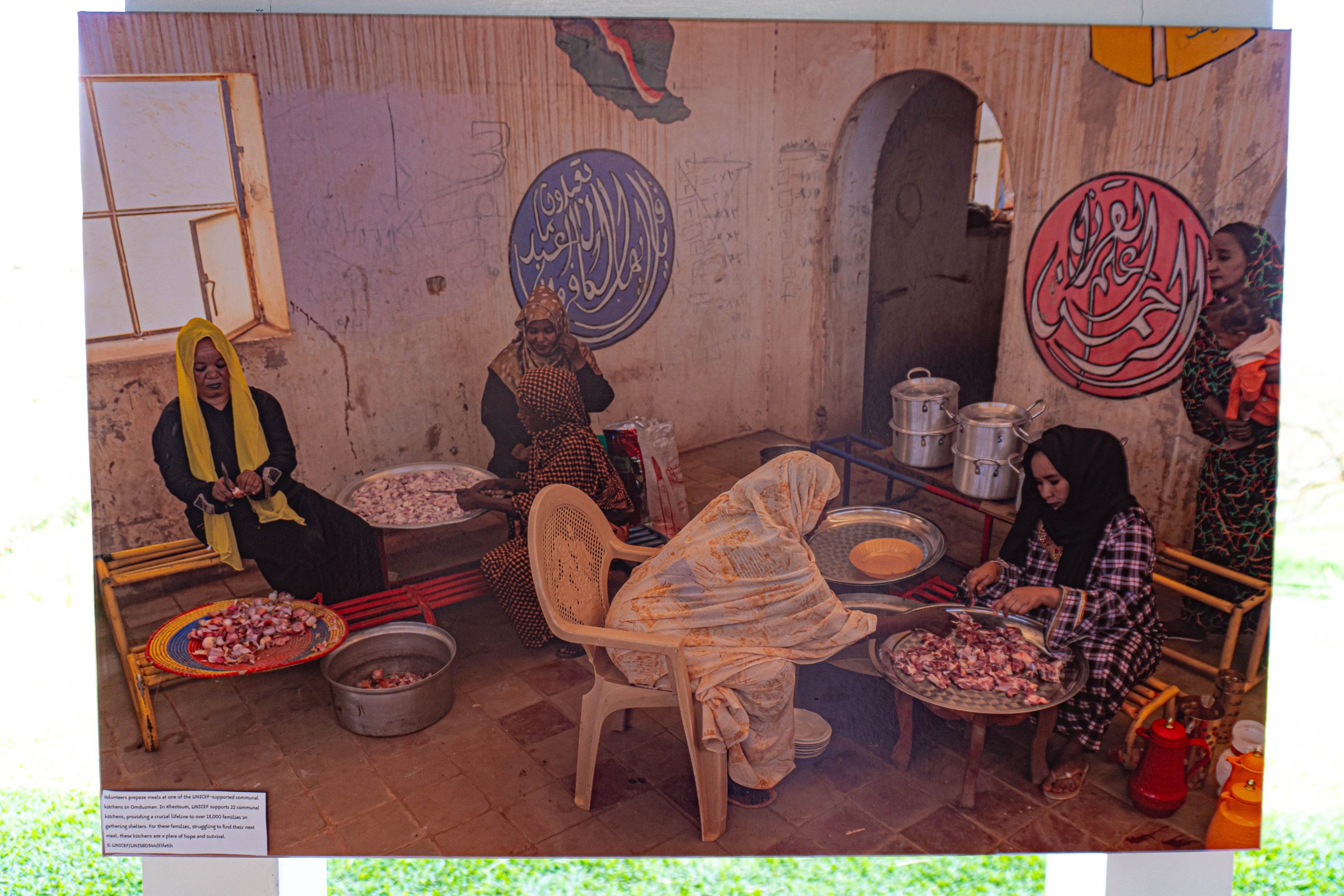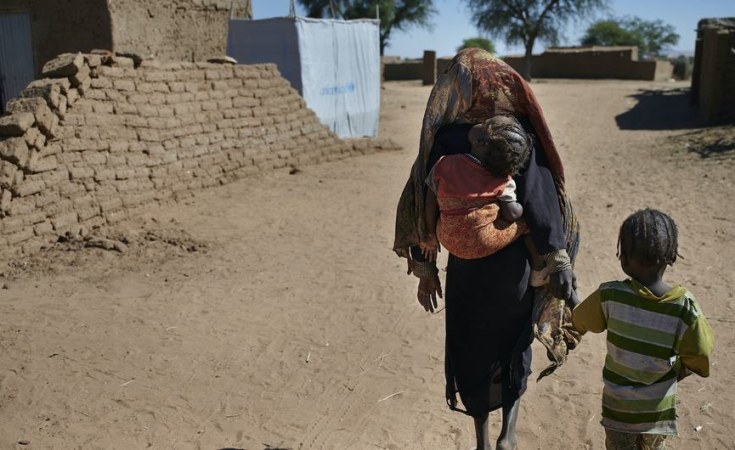As the summer cultivation season began in May 2024, Fatima Hassan, a 52-year-old farmer from New Halfa, Kassala State, in eastern Sudan, faced an uncertain future. Like thousands of other farmers in her region, Fatima lacked the financial means to purchase seeds, fertilizers, herbicides, or even hire a tractor. The ongoing armed conflict in Sudan had severely disrupted agricultural activities, leaving farmers without the necessary resources to cultivate their land.
‘When I learned about the Sudan Food Security Initiative (SFSI), I was extremely happy. The support from the initiative has given me and my family renewed hope,’ Fatima said while tending to her groundnut farm.”

Under the aegis of the SASAS program, the USAID-funded SFSI was launched in May 2024 in response to Sudan’s food security challenges. Targeting over 50,000 farmers in the New Halfa scheme, the initiative aims to strengthen resilient food production systems by providing significantly subsidized agricultural inputs and technologies, ensuring that farmers can sustain and enhance their farming practices despite the ongoing conflict in the region.

Sowing seeds of optimism
‘Support from SASAS came at a critical time as the armed conflict spread into new areas across the country, de-risking the crucial summer planting season. Through the SFSI, we are enabling farmers to adopt improved technologies and inputs at more affordable rates, thereby enhancing Sudan’s domestic food production,’ said SASAS Program Chief of Party Abdelrahman Kheir.
The SFSI provides each farmer with a 70% subsidy on a comprehensive package that includes land preparation for 0.42 hectares (ha), improved seeds for groundnut and sorghum, crop protection supplies, fertilizers, and agricultural advisory services. This initiative has already resulted in the planting of 14,568 ha of sorghum and 5,882 ha of groundnut. The crops are showing promising signs, with germination progressing well across all cultivated areas.
‘We had lost all hope of benefiting during this cultivation season. The subsidized land preparation, seed purchase, and other inputs have given us a lifeline. In the past, I was not able to buy fertilizers and herbicides, so my sorghum production was poor. This time things have changed dramatically, and we are well-equipped for a good cultivation season,’ said Hamid Rahama, a farmer from northern Halfa. Hamid echoes the optimism shared by many farmers in the region.”
Focus on a sustainable and food secure ecosystem
One of the most significant aspects of the initiative is its focus on building a sustainable seed production system. In partnership with 120 farmers and a private seed company, 252 ha (189 ha of sorghum and 63 ha of groundnut) were established for seed production in New Halfa. The initiative is projected to yield 360 metric tons (t) of sorghum and 270 t of groundnut seeds, thereby enhancing the resilience of the local agricultural ecosystem.
The anticipated yields from these efforts instill a much-needed optimism in an otherwise challenging situation. For groundnuts, the expected yield is 4.5 t/ha, resulting in an output of 26,000 t, enough to meet the nutritional needs of over 1.2 million people. Likewise, the sorghum harvest is projected to reach 54,000 t, providing sustenance for approximately 720,000 people.


The bold sections indicate the changes made for grammatical correctness, including unit consistency and phrasing adjustments.
In addition to providing inputs, the SASAS program also addresses broader food security challenges by ensuring that farmers receive the necessary technical support throughout various agricultural operations. This includes the introduction of drought-tolerant sorghum varieties, which are showcased to farmers through field days and demonstration plots.
Despite the numerous challenges posed by the ongoing conflict in Sudan, CIMMYT and its partners involved in implementing the SASAS initiative remain undeterred. Although the ongoing armed conflict has compelled many local agriculture advisory companies to scale back their operations due to security and logistical difficulties, the teams remain committed to supporting Sudanese farmers and improving agricultural productivity, thereby contributing to Sudan’s overall food security.
‘We lost a significant number of improved seed production fields due to the conflict. Nevertheless, we ensured the provision of all necessary certified seeds for the SFSI, along with top-quality herbicides,’ said the CEO of Harvest Agricultural Company Isam Ali. He added that despite considerable challenges in transporting agricultural machinery due to security issues, the company completed all land preparations in a timely manner for farmers.
The early impact of SFSI is evident in the renewed hope and optimism among farmers in New Halfa, who are now better equipped to face the challenges of the summer cropping season and contribute to the nation’s food security. With the harvest dates approaching—November for groundnuts and December for sorghum—the initiative is on track to significantly enhance food production in the region, providing a lifeline to thousands of farmers such as Fatima and Hamid.


 Capacity development
Capacity development 
